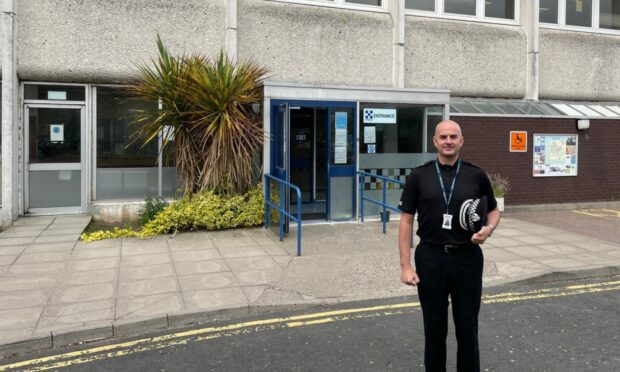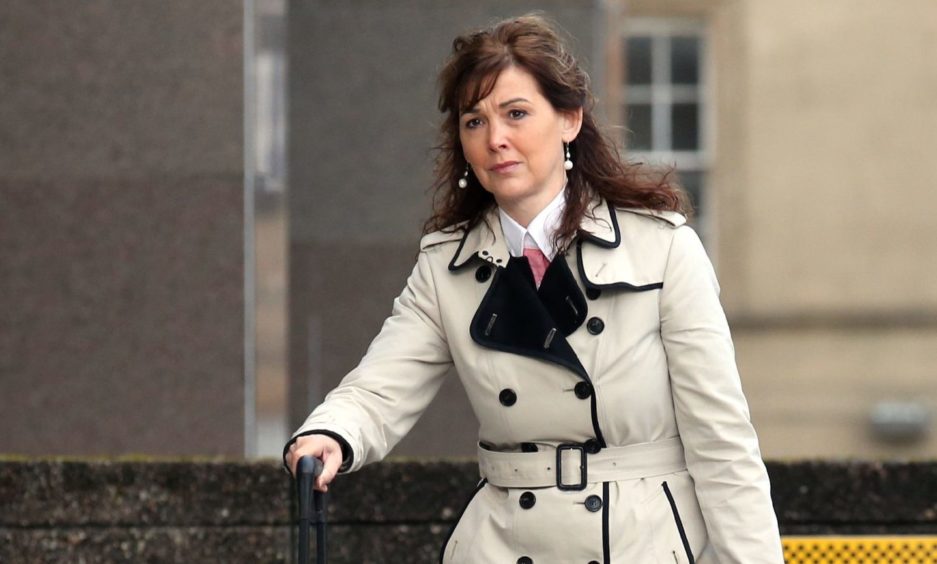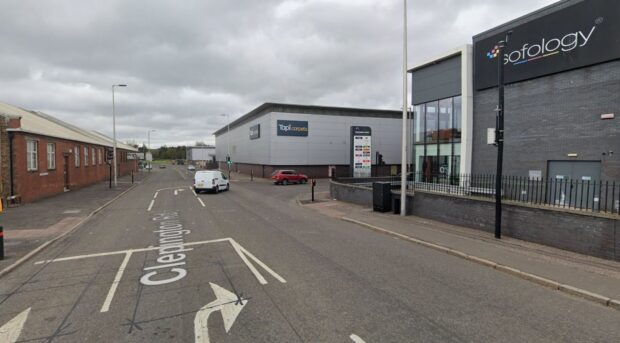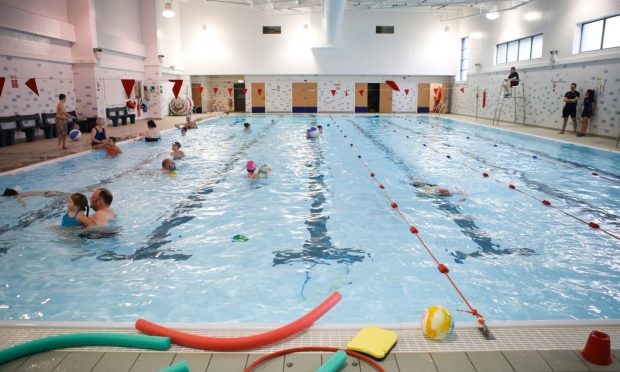The continued Covid response is still having a “significant impact” for police in Tayside, the force’s new commander for the region has said.
Chief Superintendent Phil Davison took on the top role in Tayside earlier this year, overseeing policing across Tayside after his predecessor, Andrew Todd, retired.
In an interview with The Courier, he says opportunists are finding new ways to commit crime and the extended challenge of the virus is creating new issues for police to tackle.
Pandemic has been ‘two years of challenge’ for police
“The pandemic period has been going on for quite some time now. It has been two years of real challenge,” said Ch Supt Davison.
“Challenging on an individual level, remembering that officers and staff that work for the service are individually affected the same as everybody else.
“But [it is also a] challenge across the system, and across communities it has created real issues that we’ve had to tackle in different ways.
“The lockdowns, for example, created criminal opportunists looking into additional means of committing crimes, with increases in cyber-related activity seen in particular.
“We have responded to that by increasing our national and local capabilities in this area and through the provision of clear preventative advice and support for the public”.
He admitted many in the force are tired as the pressure of responding to the pandemic continues.
“The effort of our staff throughout I have been really proud of because it has been really challenging. It has been really, really hard.
“The reality is, across all of our communities, people are tired and getting to the point of exhaustion.
“The effort that [officers and staff in Tayside] have put in has been really significant and gone above and beyond to make a difference in our communities.
The reality is people are tired and getting to the point of exhaustion.
Chief Superintendent Phil Davison
“But that comes with a cost, particularly with the challenges of COP26 and other major events.
“What’s to come over the next short period we don’t fully understand, but it will certainly have an impact.”
And after reports that hundreds of officers across Scotland were isolating because of the virus, Ch Supt Davison sought to reassure the public that the force has sufficient capacity.
“In Tayside, as is the position for policing nationally, we follow Scottish Government and health guidance, and where cases of coronavirus are identified, we work with the local health board and adhere to Test and Protect procedures.
“I want to reassure our communities that we have sufficient capacity and as a national service Police Scotland can flex resources should there be a requirement to do so,” he said.
The senior officer also said court backlogs were having a knock-on impact on officers and victims who are waiting for justice.
Courts backlog
The pandemic forced courts to delay many cases, and Scotland’s top prosecutor has said the backlog could take “multiple years” to clear.
It is understood there are over 800 cases across Scotland awaiting trial in the High Court, which deals with the most serious offences, including rape and murder.
Mr Davison said that as well as a “traumatic” impact for victims, the backlog is also impacting officers.
“I think it’s fair to say that the pandemic has had a significant impact on the justice system as whole.
The closure of courts for a lengthy period of time has an impact direct to victims, and that can be traumatic
“That’s been recognised across all of the services, the closure of courts for a lengthy period of time has an impact direct to victims, and that can be traumatic and worrying in a number of cases.
“For officers, it’s a backlog of cases that then requires potential court appearances, and for policing as well, is the management of perpetrators pending trial.
“There has been an impact, but it’s an impact that’s faced nationally,” he said.
But in responding to the new challenges posed by Covid-19, Mr Davison said Police Scotland had also found new ways of working that could be kept in place after the pandemic is over.
“There have been loads of process changes and technology improvement that have been accelerated because of the pandemic.
“The issue of mobile devices across the workforce has helped our people to work more efficiently. That will continue and we’ll be able to build from that as we come out of the pandemic,” he said.
Mr Davison said that the pandemic brought about a greater number of “hidden harms” behind closed doors which meant different agencies had to collaborate.
Pandemic has created new ways of working for police
He also highlighted increased policing measures in cyberspace, both in terms of investigating crime online and undertaking preventative work.
“We’ve shown that as a collective when thrown together in a point of crisis, that communities and people can pull together really strongly.
“I think if we can come out of this and capture that there are real opportunities.”












